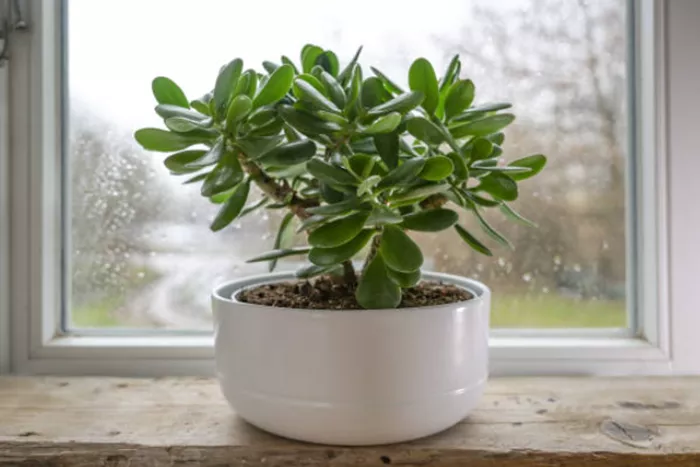Diwali, the festival of lights, symbolizes the victory of light over darkness and good over evil. As families across India prepare to celebrate this joyous occasion, the tradition of gifting plays a significant role. While sweets and decorative items are popular gifts, a growing trend is to give plants. Plants not only enhance the beauty of a home but also represent growth, renewal, and the essence of nature. This article explores nine plants that make perfect Diwali presents, emphasizing their significance, care tips, and unique qualities.
1. Money Plant (Pothos)
The Money Plant, also known as Pothos or Devil’s Ivy, is a popular choice for gifting during Diwali. This resilient plant thrives in various conditions, making it ideal for both seasoned gardeners and novices.
Symbolism and Significance
In many cultures, the Money Plant is believed to bring prosperity and good luck. Its heart-shaped leaves symbolize love and affection, making it a thoughtful gift for friends and family.
Care Tips
Light: Thrives in indirect sunlight but can adapt to low light conditions.
Water: Allow the soil to dry out between waterings; overwatering can lead to root rot.
Soil: Well-draining potting mix is best for healthy growth.
2. Peace Lily (Spathiphyllum)
The Peace Lily is not only beautiful but also serves as a symbol of peace and harmony, making it an excellent Diwali gift.
Symbolism and Significance
The Peace Lily represents purity and tranquility. Its white blooms, resembling a white flag, convey a message of peace, aligning perfectly with the festival’s spirit.
Care Tips
Light: Prefers low to medium, indirect sunlight.
Water: Keep the soil moist but not soggy; it will droop when it needs water.
Soil: Use a lightweight potting mix that retains moisture yet drains well.
3. Jade Plant (Crassula ovata)
The Jade Plant, with its thick, fleshy leaves, is known for its longevity and resilience, making it a meaningful gift during Diwali.
Symbolism and Significance
Often called the “friendship tree,” the Jade Plant is a symbol of good luck and prosperity. It is believed that gifting a Jade Plant can enhance financial success.
Care Tips
Light: Requires bright, indirect sunlight for optimal growth.
Water: Allow the soil to dry out completely between waterings.
Soil: Well-draining succulent mix is ideal.
4. Bamboo Plant (Lucky Bamboo)
Lucky Bamboo is a popular plant that is often associated with good fortune and positive energy.
Symbolism and Significance
This plant is a symbol of luck, prosperity, and happiness. The number of stalks in a bamboo arrangement signifies different blessings, such as health, wealth, and love.
Care Tips
Light: Prefers indirect light; too much direct sunlight can scorch the leaves.
Water: Change the water every two weeks if grown in water; keep the soil moist if planted.
Soil: Use a light, well-draining potting mix if planted in soil.
5. Aloe Vera
Aloe Vera is well-known for its medicinal properties and is a favorite among plant lovers.
Symbolism and Significance
Aloe Vera symbolizes healing and protection, making it a thoughtful gift for friends and family. Its soothing gel is perfect for treating burns and skin irritations.
Care Tips
Light: Requires bright, indirect sunlight but can tolerate some direct sunlight.
Water: Allow the soil to dry completely between waterings.
Soil: Use a well-draining cactus mix for optimal growth.
6. Marigold Plant (Tagetes)
Marigolds are traditional flowers used in Diwali celebrations, known for their vibrant colors and pleasant fragrance.
Symbolism and Significance
Marigolds represent the sun and are believed to bring positive energy and joy. They are often used in rituals and decorations during Diwali.
Care Tips
Light: Requires full sunlight for healthy blooming.
Water: Keep the soil consistently moist, especially in hot weather.
Soil: Well-draining garden soil is ideal for marigolds.
7. Orchids
Orchids are exotic flowers that add a touch of elegance to any space.
Symbolism and Significance
In many cultures, orchids symbolize beauty, strength, and love. Gifting orchids can express deep emotions, making them a perfect choice for loved ones during Diwali.
Care Tips
Light: Prefer bright, indirect light; avoid direct sunlight.
Water: Water once a week, allowing the potting medium to dry out between waterings.
Soil: Use a special orchid mix that provides good drainage.
See also: The Best Christmas Plants to Send
8. Rosemary (Rosmarinus officinalis)
Rosemary is an aromatic herb known for its culinary uses and fragrant scent.
Symbolism and Significance
This herb symbolizes remembrance and love. Gifting a Rosemary plant can express your affection and appreciation for the recipient.
Care Tips
Light: Needs full sun; place it in a south-facing window.
Water: Allow the soil to dry between waterings; avoid overwatering.
Soil: Well-draining potting mix is best for rosemary.
9. Basil (Ocimum basilicum)
Basil, often referred to as Tulsi in India, holds spiritual significance and is widely used in Indian cuisine.
Symbolism and Significance
Tulsi is considered a sacred plant in Hinduism, representing purity and is believed to bring blessings to the household. Gifting Basil is both practical and meaningful.
Care Tips
Light: Requires full sun for optimal growth.
Water: Keep the soil consistently moist but not soggy.
Soil: Well-draining potting mix enriched with organic matter is ideal.
Conclusion
Plants make for thoughtful and sustainable gifts during Diwali, symbolizing growth, prosperity, and love. Each of the nine plants discussed—Money Plant, Peace Lily, Jade Plant, Lucky Bamboo, Aloe Vera, Marigold, Orchids, Rosemary, and Basil—brings its own unique qualities and meanings, making them perfect presents for this festive season. By gifting plants, you not only enhance the beauty of your loved ones’ homes but also promote a sense of connection to nature and the environment. As you celebrate this Diwali, consider these nature’s gifts that will continue to grow and flourish, embodying the spirit of the festival long after the lights have dimmed.
Related topics:


